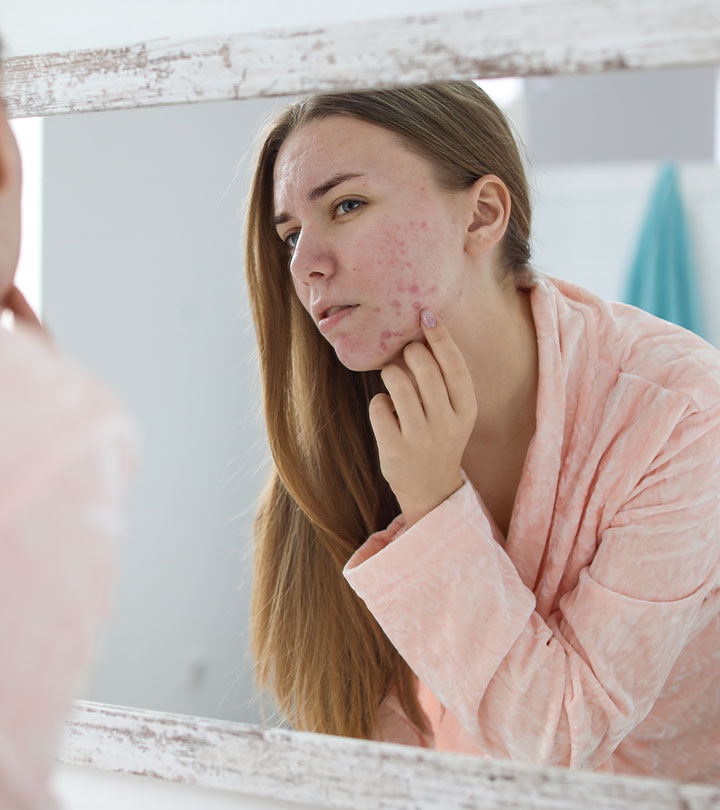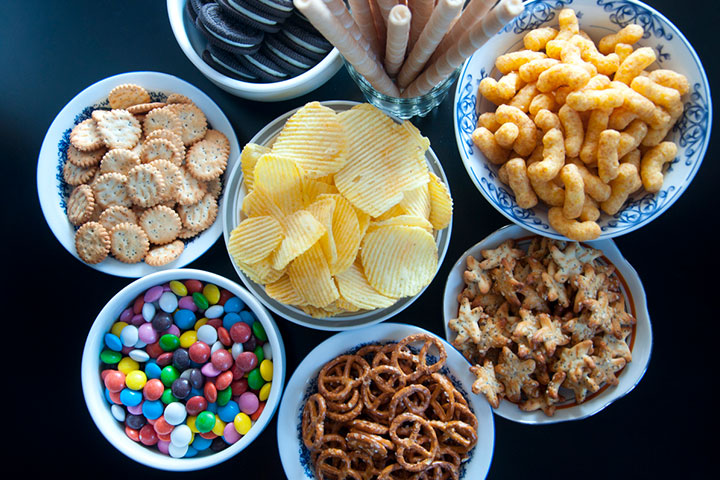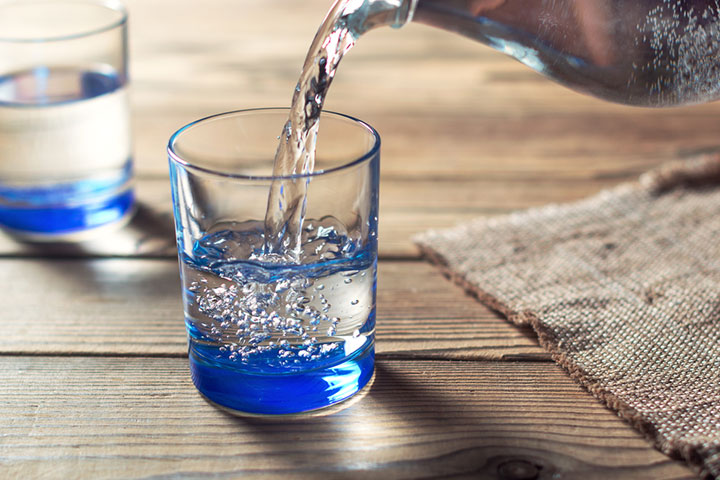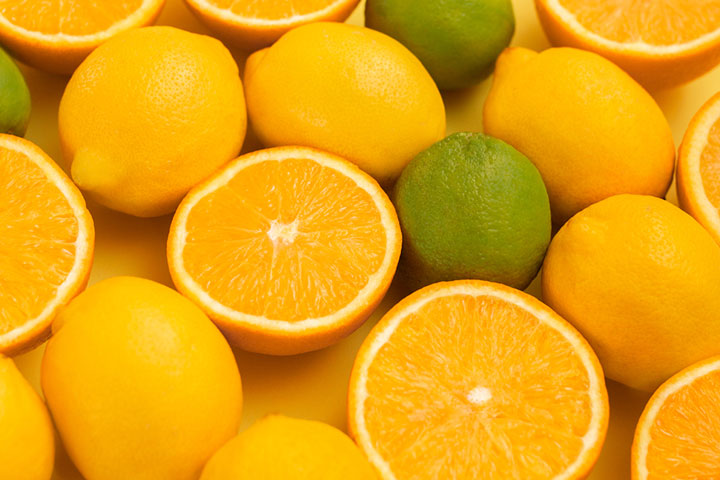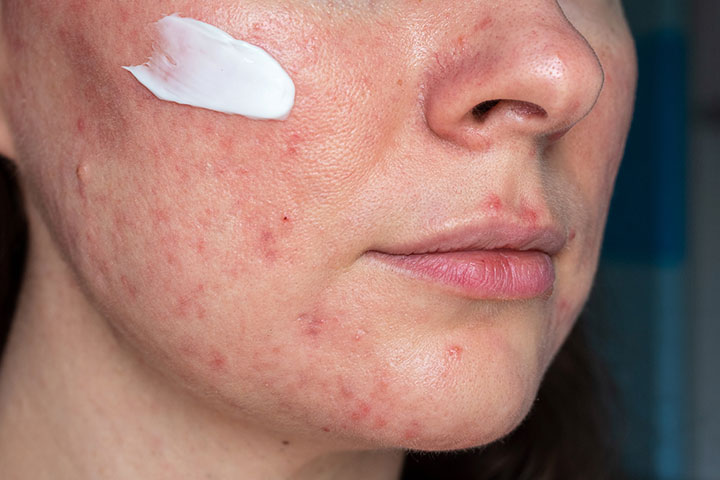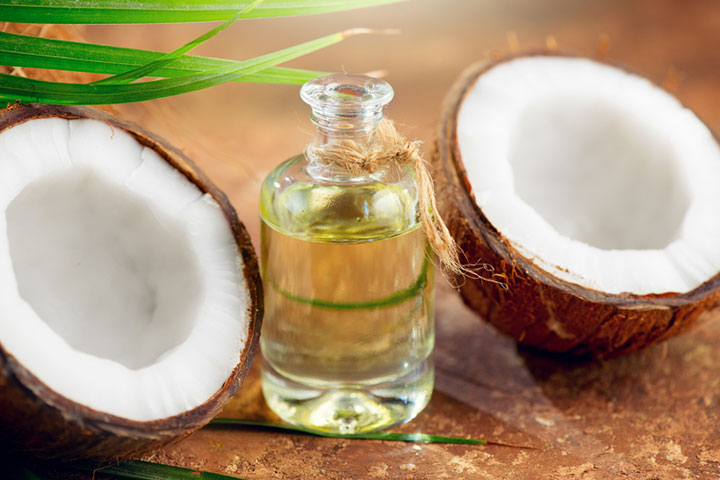For women prone to acne, it is not uncommon to experience breakouts during and after pregnancy. In this post, we talk about acne and breastfeeding. Acne occurs when dead skin and oil block the hair follicles. Bacterial growth multiplies in the blockage, leading to pimples or acne. While acne most commonly occurs on the face, it may also occur on the neck, chest, back, and arms (1). While over-the-counter (OTC) acne medicines may be working well for you, you may want to be doubly sure regarding their safety while using them during breastfeeding. Read on as we talk about the causes, home remedies, and safe treatment options for acne when breastfeeding.
Can Breastfeeding Cause Acne?
A rise in serum androgen levels in pregnancy leads to increased sebumiXA oily substance secreted by sebaceous glands, which acts as a lubricant and protects the skin. production and hence causes acne (2). This continues after delivery too. After delivery, it takes some time before the hormones settle down, and hence acne might occur. Moreover, for new mothers reduced sleep and increased stress may also cause pimples.
If your skin is prone to acne, you are likely to have it during breastfeeding as well (3). However, not all women who are breastfeeding will have the breakouts.
Causes Of Acne When Breastfeeding
Although it is suggested that maternal hormonal fluctuations or changing levels of estrogen and progesterone levels may lead to acne, the exact cause is still unknown (4). Below are some of the possible reasons for acne in women who are breastfeeding.
- Lack of sleep and increased stress (5)
- Dehydration
- Fried, spicy foods, moderate processed foods
- High androgen increases sebum production and may cause acne (6)
- The small pores present on the skin surface are connected to the sebum-producing glands under the skin by a canal, which is also known as a hair follicle. At times, the sebum, hair, and dead skin cells can collect and form a plug. The bacteria present in the plug causes swelling, and eventually leads to acne (7)
- An increase in sebum production in the last few months of pregnancy and during breastfeeding might also cause acne (8)
- Endocrine system conditions like polycystic ovary syndromeiXA hormonal condition in females characterized by irregular periods, cysts in the ovaries, weight gain, and excess body hair. (9)
- Women with Cushing’s syndromeiXDisorder occurring on exposure to excessive cortisol hormone, leading to symptoms such as fatigue, excess body hair, and weight gain. (10)
Some of the above causes are generic and might cause acne irrespective of whether a woman is breastfeeding or not.
Home Remedies For Acne During Breastfeeding
Developing a skin-care routine and sticking to it can help in the prevention and recurrence of pimples. The following measures might help you deal with acne (6) (11).
- Drink eight to ten glasses of water every day.
- Wash your face with a mild oil-free face wash and lukewarm water twice a day. Do not scrub the skin as it can increase oil production.
- Do not burst the pimples as it can lead to the spread of bacteria to other parts of the body.
- Use a mild cleanser for sensitive skin.
- Apply fragrance-free moisturizer and sunscreen lotion.
- Eat a healthy and well-balanced diet. Avoid eating junk food and very spicy food. Include healthy fruits, vegetables, and whole grains in your daily maternal diet. Avoid food with a high glycemic index.
- Try and get sufficient sleep. Sleep when the baby sleeps. It might be difficult with an infant, so ask friends or family to help with cooking, cleaning, chores when possible.
Some herbs and natural remedies are used for acne. However, it is not known if these are safe while breastfeeding. Use these after consulting your doctor.
- Applying tea tree oil is considered effective (12)
- Consumption of probiotics might help reduce acne (13)
- Essential oils, like basil oil and copaiba oil, might also be helpful (14)
- Drinking green tea (14)
- Topical application of citrus fruits (15)
- Topical application of honey can help, owing to its antibacterial and antifungal properties (16)
- Topical application of extra virgin coconut oil due to its antimicrobial and antiviral properties (17)
- Anecdotal evidence suggests the use of baking soda
- A mask made from oatmeal and cucumber
- Apple cider vinegar can kill acne-causing bacteria (18). Mix one part of vinegar with three parts of water and apply it to your acne spots after cleansing your face. Leave it for 30 seconds, then rinse it off (19).
- Using a honey and cinnamon face mask can help manage acne. Mix two tablespoons of honey with one tsp of cinnamon to make a smooth paste. Leave it for about 10 to 15 minutes, and wash it off.
- Aloe vera is recognized for its anti-acne abilities and has been medically employed to treat acne vulgaris (20). Apply freshly extracted aloe gel to acne-prone areas for faster healing.
Everything labeled under the tag of natural may not be safe when you are breastfeeding. Therefore, it is best to consult a doctor before using these home remedies.
Acne Treatment When Breastfeeding
If the acne outbreak is severe, then the doctor may suggest a treatment plan that is safe during breastfeeding. The first line of treatment is the topical application. Ointments accumulate in the follicles and treat the acne due to their anti-bacterial and anti-inflammatory properties.
The doctor might prescribe ointments containing one or a combination of the following drugs (21).
- Antibiotics like erythromycin, clindamycin, metronidazole, dapsone, etc.
- Benzoyl peroxide
- Azelaic acid
- Salicylic acid
All these medicines are available as OTC drugs, but do not use them without consulting your doctor.
Severe cases of acne, like cystic acneiXLarge, painful, and pus-filled acne that develop deep within the skin follicles and leave scars., might not cure with topical ointments alone. In such cases, the doctor might recommend the use of oral medications or light therapy (21). Oral medications include:
- Oral macrolidesiXA class of antibiotics that help manage bacterial infections by inhibiting protein synthesis in bacteria.(erythromycin or azithromycin)
- Cephalexin
- Zinc compounds
Blue-violet or red-light phototherapyiXA technique that involves exposure to lightwaves, usually used to treat specific skin conditions. is used as a separate treatment entity or is administered along with topical or oral medications.
Treatment To Avoid When Breastfeeding
Topical application and oral medications containing the following drugs are contraindicated for nursing mothers (21).
- Hormonal therapy
- Co-trimoxazole
- Fluoroquinolones
- Topical and oral retinoids
Does Breast Milk Clear Acne?
A study noted that human breast milk contains a natural compound called lauric acid, which could have the potential to treat acne (22). Lauric acid is also found in coconut oil. Therefore, you may use virgin coconut oil as well.
Acne while breastfeeding is not uncommon and is mostly temporary. The hormonal imbalance during postpartum and breastfeeding, the stress of giving birth and caring for the child, sleeplessness, etc., are some common causes of acne while breastfeeding. However, refrain from using any OTC ointments or prescription drugs without consulting your gynecologist or dermatologist. Proper hydration, a well-balanced diet, and avoiding junk food can help get rid of acne during breastfeeding. Check with your doctor if you have any concerns about acne while breastfeeding.
Key Pointers
- Acne during breastfeeding can be caused by hormonal changes, lack of sleep, stress, dehydration, and unhealthy foods.
- To prevent acne, drinking water, following a skincare routine, having a healthy diet, using tea tree oil, probiotics, basil oil, copaiba oil, honey, and coconut oil may be helpful.
- Consult a doctor before using topical ointments containing antibiotics, benzoyl peroxide, azelaic acid, or salicylic acid while breastfeeding.
- Avoid using aspirin to make at-home salicylic acid.
- Lauric acid found in human breast milk and coconut oil has potential for treating acne.
Are you a breastfeeding mom wondering if it’s okay to use acne treatment and stretch mark cream? Watch this video to find out!
